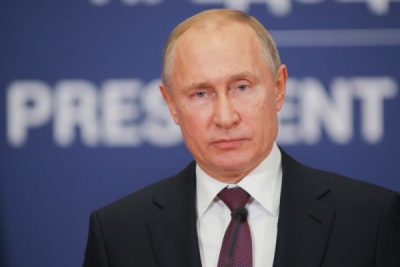West Aims to Weaken Russia Using New Fighting in Syria and Protests in Georgia

In the past, there were many locally defined conflicts on the various continents, which were often unrelated. But in today’s global world, in which the big players operate with all the powerful structures of the special services, we always have to ask ourselves in every single conflict which interests it serves.
Now that it is becoming increasingly clear that Ukraine will not be able to achieve success in the conflict with Russia despite massive Western support, very interesting incidents are currently occurring in other corners of the world.
In Syria, jihadist militias have been fighting against government forces for a few days. According to the UN, more than 48,500 people have been displaced as a result of the escalation. The jihadist group Hayat Tahrir al-Sham (HTS) and allied groups launched a surprising major offensive against government troops in northern Syria.
They managed to bring parts of the city of Aleppo under their control. Russia, which is allied with Syria, then carried out air strikes for the first time since 2016. The foreign ministers of Iran, Turkey and Russia are scheduled to meet on December 7 to discuss the situation in Syria. This was announced by Iranian Foreign Minister Abbas Araqchi, according to state media. The meeting in the so-called “Astana constellation” is to take place on the sidelines of a forum in Doha.
This offensive was completely unexpected. Hardly anyone expected that the Syrian rebels would be able to launch a major offensive again. The reason for this success is clearly that the Syrian regime did not expect offensive operations either. In addition, there is the overall situation that the supporters of the Syrian army, especially the Russians, Iranians and Hezbollah, are busy with other things at the moment.
All of these actors are busy at the moment: Russia with Ukraine’s special operation, Iran with its weakness in the conflict with Israel and Hezbollah with the consequences of the Israeli attack on Lebanon since October. This situation now ties up many Russian forces in this region. This fact is clearly in the interests of Western forces.
At the same time, there are now massive protests by the pro-Western opposition in Georgia. The protests in the Caucasus state began days ago. They are particularly directed against the postponement of the country’s EU accession negotiations until 2028, announced by Prime Minister Kobakhidze.
There will be “no revolution” in Georgia, Kobakhidze emphasized to the journalists. He also accused the protests of being “funded from abroad.” Georgian President Salome Zurabishvili, who is opposed to the government, said there were “no signs” that the protest movement in the country would subside.
The Baltic EU and NATO member states Estonia and Lithuania imposed sanctions on eleven Georgian government employees whom they accused of human rights violations. In Berlin, deputy government spokesman Wolfgang Büchner said the German federal government “stands on the side of the people in Georgia who are committed to European values, democracy, freedom of expression and human rights and expect their government to make appropriate corrections.”
Very similar rhetoric to what we heard in 2014 regarding the coup in Ukraine. So there is massive Western support for the protests in Georgia. The security structures of the Russian Federation must now closely monitor and analyze this development in the neighboring state.
There is also further potential for conflict due to the regions of Abkhazia and South Ossetia, which split off from Georgia. As we know from the past, frozen conflicts are often used to be reactivated at the right time. There have already been discussions in Georgia about reconnecting these independent territories to the Georgian state.
The current situation in Georgia can be described as dangerous. Because there is a great similarity here to the events that took place in Ukraine in 2014. It is clear that the Western forces supporting Ukraine want to open further fronts against Russia. Given its geographical location and the current political situation, Georgia is very suitable for such an experiment.
The conflict in Ukraine, as well as the current fighting in Syria and the protests in Georgia, are related to the interests of the West. The aim is to weaken Russia and its allies and to attract other states to the West’s side. It is also entirely conceivable that the Biden government is planning further escalation out of fear that there will be a new policy after the expected inauguration of Donald Trump as US President in January.
*
Click the share button below to email/forward this article to your friends and colleagues. Follow us on Instagram and Twitter and subscribe to our Telegram Channel. Feel free to repost and share widely Global Research articles.
Global Research’s Holiday Fundraiser
Patrick Poppel is an expert at the Center for Geostrategic Studies (Belgrade).

